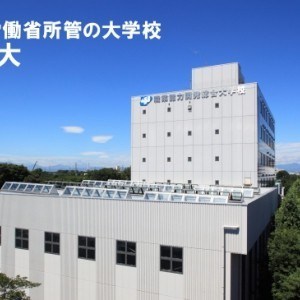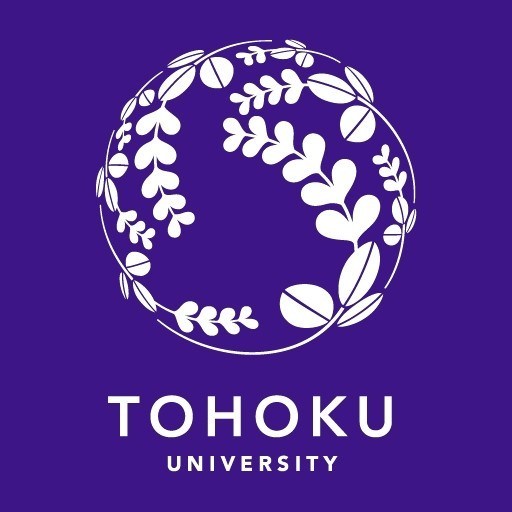Photos of university / #kyotouniversity
The International Course in Intelligence Science and Technology at Kyoto University offers a comprehensive and interdisciplinary program designed to equip students with advanced knowledge and practical skills in the fields of intelligence, data analysis, machine learning, and information technology. This program aims to foster innovative solutions to complex problems by integrating concepts from computer science, cognitive science, and engineering, preparing graduates to contribute effectively to the rapidly evolving landscape of information technology and intelligent systems. Students will have access to cutting-edge research facilities and collaborate with leading experts in the field, gaining hands-on experience through laboratory work, projects, and internships. The curriculum includes foundational courses in artificial intelligence, robotics, data mining, and decision-making processes, as well as specialized topics such as cybersecurity, neural networks, and natural language processing. Emphasis is placed on the development of analytical thinking, problem-solving abilities, and interdisciplinary communication skills necessary for careers in academia, industry, and government sectors. The program encourages international collaboration and offers courses taught in English to accommodate students from around the world. Graduates of this program will be well-equipped to pursue careers in AI research, system development, data science, or to undertake further academic studies in related fields. The program reflects Kyoto University’s commitment to advancing innovation and fostering global leaders in intelligence science and technology, contributing to society by addressing pressing challenges through technological ingenuity.
The International Course in Intelligence Science and Technology at Kyoto University offers a comprehensive and multidisciplinary curriculum designed to equip students with advanced knowledge and practical skills in the fields of intelligence, data analysis, machine learning, and artificial intelligence. The program emphasizes theoretical foundations alongside hands-on experience, preparing graduates to tackle complex problems in various sectors such as security, information systems, and autonomous technologies.
Students enrolled in this program will explore core subjects including information theory, algorithms, neural networks, robotics, and data mining. The curriculum is structured to foster innovative thinking and problem-solving abilities through a combination of lectures, research projects, and laboratory work. Emphasis is placed on understanding the ethical and societal implications of intelligence technologies, ensuring that graduates are not only technically proficient but also socially responsible.
The program encourages international collaboration by offering courses in English and welcoming students from around the world. Students have opportunities to participate in joint research projects with leading laboratories at Kyoto University and partner institutions globally. Through seminars, workshops, and internship programs, students develop critical skills in research methodology and project management.
Graduates of the International Course in Intelligence Science and Technology are well-prepared for careers in academia, industry, and government agencies. They can contribute to the development of next-generation intelligent systems, improve existing technologies, and address emerging challenges associated with data security, privacy, and automation. The program’s overall goal is to cultivate innovative experts capable of advancing the boundaries of intelligence science and technology, thereby making significant contributions to society and the global community.
Program requirements for the International Course in Intelligence Science and Technology at Kyoto University typically include a combination of academic prerequisites, language proficiency, and submission of application materials. Prospective students are generally expected to hold a bachelor’s degree or equivalent from an accredited institution in a related field such as engineering, information science, computer science, or a related discipline. Applicants must demonstrate a strong academic record, often evidenced by transcripts and academic references. Since the program is conducted in English, applicants are usually required to submit proof of English language proficiency through standardized tests such as the TOEFL or IELTS, with minimum scores specified by the university. Furthermore, applicants may need to provide a Statement of Purpose explaining their motivation for pursuing the course, their relevant academic and professional experiences, and their career objectives. Letters of recommendation are also typically required from academic or professional references who can attest to the applicant’s suitability for the program. Additionally, some programs may require a CV or resume detailing the applicant’s educational background, research experience, and technical skills. Depending on the applicant’s nationality, some additional documentation or examination requirements might be necessary for visa processes. The entrance examination could involve written tests or interviews to assess a candidate’s technical knowledge, problem-solving abilities, and potential for research in intelligence science and technology. Technical prerequisites might include programming skills or familiarity with data analysis, depending on specific course modules. Applicants are advised to consult the official Kyoto University admissions information for precise and updated requirements, as criteria may vary slightly between academic years or based on individual circumstances. Overall, successful applicants should demonstrate not only academic competence but also a strong interest in advancing the field of intelligence science and technology, along with the ability to communicate effectively in an international academic environment.
Funding for the International Course in Intelligence Science and Technology at Kyoto University primarily comprises a combination of government scholarships, university-specific financial aid, and private grants. Japanese government-sponsored programs, such as the MEXT (Monbukagakusho) Scholarship, are available to international students and cover tuition fees, a monthly stipend for living expenses, and sometimes travel expenses. These scholarships are highly competitive and aim to promote academic exchange and research collaborations in advanced fields like intelligence science and technology. Kyoto University also offers internal financial assistance programs including tuition waivers, partial scholarships, and emergency aid funds to support international students facing financial difficulties. Additionally, there are various research grants and fellowships provided through university partnerships with industry and government agencies, allowing students to participate in funded research projects and gain practical experience while reducing financial burdens. Private foundations and international organizations occasionally provide scholarships to outstanding students enrolled in the programme; applicants must meet specific academic and language proficiency requirements. The university’s financial aid office provides comprehensive guidance and support to help students navigate available options and apply for funding opportunities. International students are encouraged to explore external scholarship programs offered by their home countries or international bodies. The programme’s cost structure includes tuition fees, which are annually reviewed and set by Kyoto University, along with living expenses that vary depending on the student’s lifestyle and accommodation choices. Kyoto University is committed to making advanced education accessible and promotes a diverse international student body through its financial support schemes. Overall, students in the International Course in Intelligence Science and Technology can access a variety of funding options designed to support their academic pursuits and research activities, ensuring that financial barriers do not impede their participation in this advanced educational programme.
The International Course in Intelligence Science and Technology at Kyoto University offers a comprehensive and challenging curriculum designed to prepare students for advanced roles in the field of intelligence and related technologies. This program emphasizes the integration of theoretical foundations with practical applications, enabling students to develop skills in areas such as data analysis, machine learning, cybersecurity, and information processing. The course is tailored for international students, fostering a multicultural learning environment that promotes collaboration and innovation across borders. Students have the opportunity to engage with cutting-edge research projects led by faculty members who are experts in their fields, ensuring that their education is aligned with current industry standards and technological advancements. The program also offers courses taught in English to facilitate accessibility for students worldwide. Kyoto University’s strong connections with industry partners and research institutions provide students with valuable internship and networking opportunities, enhancing their career prospects upon graduation. The curriculum includes coursework in mathematical modeling, algorithm development, artificial intelligence, and systems design, along with project-based learning and seminars. Graduates of this program are equipped to pursue careers in academia, industry, and government agencies, tackling global challenges related to information security, intelligent systems, and data-driven decision-making. The university’s vibrant research community and state-of-the-art facilities support students' academic growth and innovation pursuits. Overall, the International Course in Intelligence Science and Technology aims to cultivate interdisciplinary experts capable of advancing the field and contributing to society through technological innovation and research excellence.





